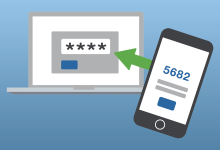
The rise of Artificial Intelligence (AI) has been one of the biggest technological advancements nowadays. While AI has brought about many benefits and opportunities, it has also caused concerns regarding its impact on employment. In this article, we will be providing you with a comprehensive guide on how AI affects employment.
What is AI
AI stands for Artificial Intelligence, which is a type of technology that allows machines to perform tasks that would typically require human intelligence. AI can learn, problem-solve, make decisions, and more. It’s designed to perform these tasks at a faster rate than humans and with greater accuracy. AI has the potential to automate many tasks and improve efficiency in the workplace, making it a valuable tool for many industries. However, as AI continues to advance, it’s essential to understand its impact on employment and take steps to address any negative consequences.
Understanding AI and Its Capabilities
To truly understand how AI impacts employment, it’s essential to understand what AI is and what it can do. AI is a type of technology that enables machines to perform tasks that would typically require human intelligence. This includes learning, problem-solving, decision-making, and more. AI can perform these tasks at a much faster rate than humans and with greater accuracy.
AI is used in many industries today, from healthcare to finance, and it’s becoming increasingly popular in the workforce. AI has the potential to automate repetitive and mundane tasks, allowing employees to focus on more complex and creative work.
Promoted contents:
- Who is the founder of BBC?
- Toshiba Corporation: Who is the founder of Toshiba?
- Google Releases Android 14 Beta 3, With Platform Stability and New Features
- Who founded Nokia? Here is all you need to know
- Who is the founder of HTC Corporation?
- Fast Charging and Multiple Variants: Samsung’s Galaxy Tab S9+ and Tab S9 Ultra Unveiled
- Who is the founder of Realme?
- The Mobvoi TicWatch 5 Pro has been launched
- Rumours of the Galaxy S23 FE: A budget-friendly variant of the Galaxy S23
- The upcoming iOS 17 will add the ability to use your locked iPhone as a smart display
The Positive Impact of AI on Employment
AI has several positive impacts on employment, including:
- Increased Efficiency: AI can automate many tasks, which allows employees to focus on more important tasks. This can increase productivity and efficiency in the workplace.
- New Job Opportunities: As AI continues to advance, new job opportunities are emerging. These include roles such as data analysts, AI trainers, and more.
- Improved Safety: AI can be used in hazardous environments to keep employees safe. For example, AI-powered robots can perform tasks in nuclear power plants or oil rigs that are too dangerous for humans.
- Better Customer Service: AI-powered chatbots can provide 24/7 customer service, improving customer satisfaction and reducing the workload on human employees.
The Negative Impact of AI on Employment
While AI has many positive impacts on employment, it also has some negative impacts. These include:
- Job Losses: As AI continues to automate tasks, some jobs may become redundant. This includes jobs in industries such as manufacturing, transportation, and retail.
- Lack of Human Interaction: AI-powered chatbots may be efficient, but they lack the personal touch of human customer service. This can lead to a decrease in customer satisfaction.
- Skill Gap: As new job opportunities emerge in the AI field, there may be a skill gap between the current workforce and the skills needed for these jobs. This could lead to a shortage of skilled workers in the future.
- Ethics and Bias: AI is only as unbiased as the data it’s trained on. If the data used to train AI is biased, the AI itself will be biased. This can lead to unfair decision-making in areas such as hiring or lending.
Conclusion
AI has the potential to revolutionize the way we work, but it’s essential to understand its impact on employment. While AI can improve efficiency, create new job opportunities, and improve safety, it can also lead to job losses, a lack of human interaction, a skill gap, and ethical concerns. To prepare for the future of work, it’s essential to understand how AI can impact employment and take steps to address any negative consequences.








